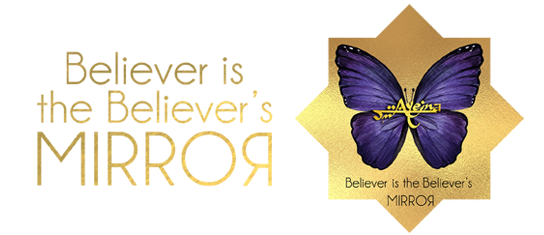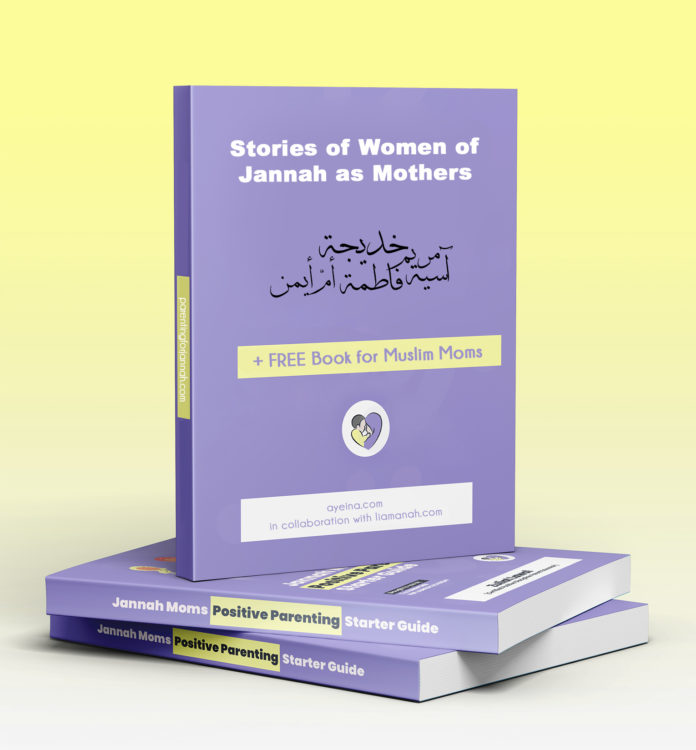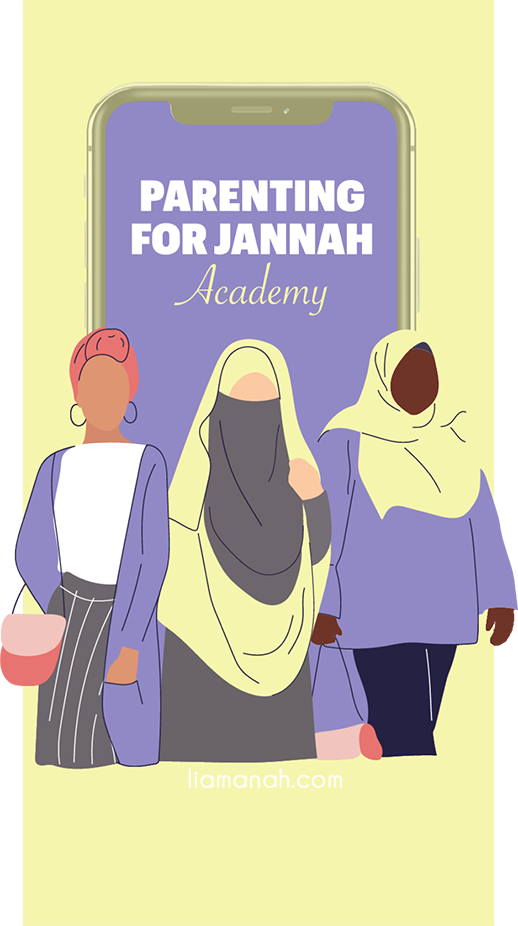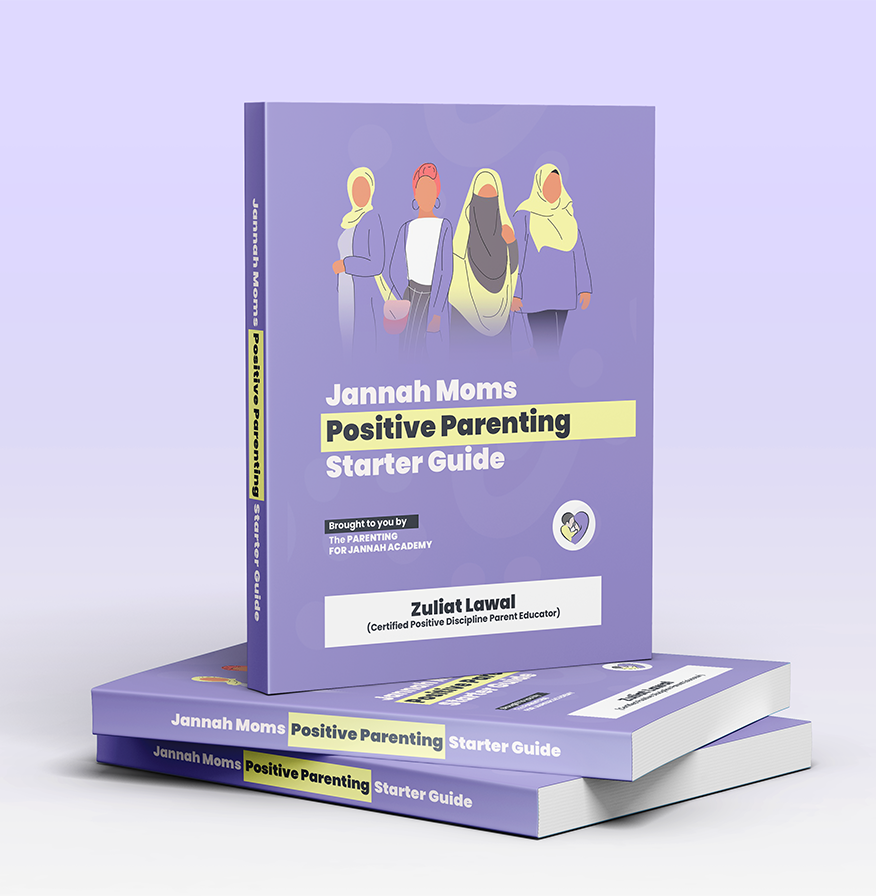This post is sponsored by Liamanah
Every time I shifted in my sleep because of reflux during pregnancy and saw my husband sleeping fast asleep, I thanked Allah for my ranks thrice higher.
Every time I wobbled like a penguin while my husband reached the destination in half the time, I thanked Allah for my ranks thrice higher.
Every time the contractions got worse and my husband couldn’t do anything but reassure me, I thanked Allah for my ranks thrice higher.
Every time I woke up at night sacrificing my sleep to nurse the baby while my husband drifted off into his dreams, I thanked Allah for my ranks thrice higher.
Every time I cried through the initial pain of nursing while my husband felt helpless because it’s only my body capable of such a miracle, I thanked Allah for my ranks thrice higher.
Every time I woke up with pain all over my body feeling like 10 years older because I’ve had no sleep for years while my husband felt 10 years younger, I thanked Allah for my ranks thrice higher.
Every time I saw those nursing little eyes glaring back at me while my husband couldn’t experience all of those beautiful moments, I thanked Allah for this honour of carrying and nurturing His amaanah and for my ranks thrice higher….
View this post on Instagram
Abu Huraira reported that a person said: Allah’s Messenger! Who amongst the people is most deserving of my good treatment? He said: “Your mother, again your mother, again your mother, then your father…” [Hadith; Sahih Muslim 2548b]
I pray to be able to raise this beautiful amaanah to be a righteous Muslim who would live their lives to please Allah, be of benefit to the Ummah, and be a source of sadaqah jaariya. In striving towards Parenting for Jannah, we cannot hope without taking any action and assume that would be a successful strategy to raise righteous Muslims.
It is easier to sit with the mom guilt and shame when we think back to how we lost our temper with our kids earlier that day; to think about the toddler and preschoolers’ tantrums and power struggles which leave us feeling exhausted and overwhelmed; the middle schoolers’ defiance, grumpy moods, low self-confidence and screen addiction which makes us wonder what the teen phase would look like. It’s easier to undermine our roles as mothers based on what we are being fed by society. Knowing my self-worth means recognising the honour Allah has granted me – that He has not granted any man on this earth. It’s HARD! No wonder Allah calls these stages “wahnan ala wahn” in the Quran (hardship upon hardship), but no high rank comes without its challenges. When Allah has put us three ranks higher, it’s a shame that we keep putting ourselves down and keep ourselves last in the list of everything. GRATITUDE is my step towards building my self-worth back. What’s yours? 💞
Women who were given the glad tidings of Paradise:
Ever since Allah gave me a new role of motherhood, I’ve been in the search of role models before me who were given His amaanah and they succeeded in this journey that Allah bestowed upon them. And which better women to study the life of than the ones who were given the glad tidings of Jannah or they were among the best of generations. Starting with these 4 women who were talked about in this beautiful hadith:
Prophet ﷺ said: “Sufficient for you among the women of mankind are Mariam bint ‘Imran, Khadijah bint Khuwailid, Fatimah bint Muhammad and Asiyah the wife of Fir’awn.” [Hadith; Tirmidhi 3878]
1) Maryam السلام عليها – a single mother
When we think of successful mothers, we usually feel that they must have everything in life to be able to achieve great heights and great kids as a result. As a single mother, you may be asking yourself if you would be able to raise your beautiful amaanah entrusted to you as righteous Muslims. History tells us over and over how these women made the best out of what they were given – even if all they were given were really hard challenges upon challenges.
Maryam السلام عليها was not any ordinary single mother. When our society sees a single mother, they have empathy for her. But Maryam was a single mother who was under the scrutiny of people – which meant that initially, she had no help from anyone because no one supported her or even believed in her. They doubted her chastity. They called her all kinds of names. Imagine having to go through the physical difficulties of childbirth only to have emotional difficulties waiting for you on the next turn. And even though she wanted to die at that moment of extreme physical and emotional pain, she pushed through for the sake of Allah and raised an amazing human being with all the love despite the hatred surrounding her.
“And the pains of childbirth drove her to the trunk of a palm tree. She said, “Oh, I wish I had died before this and was in oblivion, forgotten.” But he called her from below her, “Do not grieve; your Lord has provided beneath you a stream. And shake toward you the trunk of the palm tree; it will drop upon you ripe, fresh dates. So eat and drink and be contented. And if you see from among humanity anyone, say, ‘Indeed, I have vowed to the Most Merciful abstention, so I will not speak today to man.’ “Then she brought him to her people, carrying him. They said, “O Mary, you have certainly done a thing unprecedented. O sister of Aaron, your father was not a man of evil, nor was your mother unchaste.” So she pointed to him. They said, “How can we speak to one who is in the cradle a child?” said, “Indeed, I am the servant of Allah. He has given me the Scripture and made me a prophet. And He has made me blessed wherever I am and has enjoined upon me prayer and zakah as long as I remain alive. And dutiful to my mother, and He has not made me a wretched tyrant.” [Quran; 19:23-32]
2) Asiya السلام عليها – a foster mother
Asiya السلام عليها did not have children of her own. And the fact that the most ruthless man on planet earth spared one child out of all the other children based on her request tells us that she lived a great life as a Queen – until she denounced the religion of her husband, after which her torturous life began.
She raised Musa السلام عليه like her own son and the fact that he was such a gem of a man despite having a horrible foster father, also tells us the power of a kind mother against all odds. We usually want to give up on our children because we alone can’t raise them well. They surely need a good role model in a father too (which is true indeed), but we also learn from the stories of these great women that a woman alone can raise amazing human beings too. Irrespective of how their husbands were. Irrespective of their husband’s parenting visions and perspectives.
It takes just one parent to make that bold step to change their parenting approach and go back to our roots to embrace the Sunnah of the Prophet (ﷺ) in parenting. The Prophet (ﷺ) was known for his kindness. His attitude towards children was always compassionate and merciful.
The Prophet (ﷺ) said: “Those who do not show mercy to our young ones and do not realise the right of our elders are not from us.” [Hadith; Sunan Abi Dawud 4943]
If you are ready to change your parenting approach to one that aligns with the Sunnah of the Prophet (ﷺ) which is rooted in kindness and firmness, you can start with this FREE Jannah Moms Positive Parenting Starter Guide which gives a comprehensive knowledge of Positive Discipline and over 30 Positive Discipline Parenting strategies for toddlers, preschoolers, and middle school-age kids.
3) Khadija رضي الله عنها – a working mother
Although these women were beyond all these titles, it’s a way to show how women of different backgrounds and circumstances excelled in the roles of motherhood that Allah bestowed upon them. Perhaps someday, we will study great fathers in history too, but as a woman myself, I’m starting with my own womankind to look up to. Read the above IG post for personal reflections on the beautiful hadith below:
Narrated Abu Huraira: Gabriel came to the Prophet ﷺ and said, “O Allah’s Messenger ﷺ! This is Khadija coming to you with a dish having meat soup (or some food or drink). When she reaches you, greet her on behalf of her Lord (i.e. Allah) and on my behalf, and give her the glad tidings of having a Qasab palace in Paradise wherein there will be neither any noise nor any fatigue (trouble).” [Hadith; Bukhari 3820]
The two Arabic words used in the hadith are:
صخب – which means a mixture of noise, shouts, and cries. Loud confused noise.
نصب – which means distress, trouble, fatigue, tiredness, worn out, exerting to the utmost, struggle hard, stand upright, be in a vertical position, disease, illness, sorrow.
Being a working mother comes with its own struggles in parenting which one doesn’t have to face alone; that is why the Parenting for Jannah Academy supports you through your evolving parenting journey.
The most respected woman in Makkah guarded her chastity and modesty while building her business to aid Islam through her wealth while also raising amazing human beings who were given glad tidings of Jannah along with her too. We usually see parents striving so hard to secure Jannah for their kids while forgetting themselves in the process and she is an amazing example of a woman who strove towards Jannah herself and inspired her children towards that beautiful goal too.
And her life story also highlights how she was an extremely dedicated wife that Muhammad remembered her well beyond all the years of her passing away. Her purse was like a public treasury for the Muslims. In Makkah, there was no Bayt-ul-Mal, and it was the boundless generosity and the seemingly unlimited wealth of Khadija رضي الله عنها that saved the Community of the Faithful from starving. She was so solicitous of the welfare of the followers of her husband that she didn’t withhold even the last coin that was in her possession, and spent it on them.
4) Fatima رضي الله عنها – a stay at home mother
Fatima Bint Muhammad رضي الله عنها, as opposed to her sisters (Zainab, Ruqayyah & Umm Kulthum رضي الله عنهم), was not married in a wealthy household. Hence she worked very hard with her husband (Ali رضي الله عنه) to keep the house running – with 5 kids in the mix.
Narrated `Ali: Fatima complained of what she suffered from the hand mill and from grinding when she got the news that some slave girls of the booty had been brought to Allah’s Messenger ﷺ. She went to him to ask for a maid-servant, but she could not find him and told `Aisha of her need. When the Prophet ﷺ came, Aisha informed him of that. The Prophet ﷺ came to our house when we had gone to our beds. (On seeing the Prophet) we were going to get up, but he said, ‘Keep at your places,’ I felt the coolness of the Prophet’s feet on my chest. Then he said, “Shall I tell you a thing which is better than what you asked me for? When you go to your beds, say: ‘Allahu Akbar (i.e. Allah is Greater)’ for 34 times, ‘Al hamdu Lillah (i.e. all the praises are for Allah)’ for 33 times, and Subhan Allah (i.e. Glorified be Allah) for 33 times. This is better for you than what you have requested.” [Hadith; Sahih Bukhari 3113]
Ali (رضي الله عنه) said: “I used to draw water, one bucket for a date…” [Hadith; Ibn Majah 2447]
This shows that both husband and wife used to work really hard till their bodies ached. She was, what people would nowadays tag as, a stay at home mum while Ali رضي الله عنه was a breadwinner of the family. They were not able to afford a servant. Being a stay at home mum – who dedicated a large amount of her time in doing the house chores etc. did not hinder Fatima رضي الله عنها from paving her way to Jannah. Prophet ﷺ gave her the title of “chief of all the ladies of Paradise”. And her children got the glad tidings of being the chief of all youth in Jannah.
Messenger of Allah ﷺ said: “Al-Hasan and Al-Husain are the chiefs of the youth of Paradise.” [Hadith; Tirmidhi 3768]
So when you feel helpless due to lack of help and support that you are not able to dedicate time for yourself or your health, just remember these adhkaar. It’s said that their financial situation didn’t change, but they didn’t feel the need for house help after that (when they made these adhkaar a habit). And also remember that you can still raise great leaders of the world in circumstances like these.
5) Umm Ayman رضي الله عنها – an old mother (with young children)
In our society, we often put an age mark on when we should have kids if we want to raise them with all the energy that we have. And even though, raising children isn’t easy and indeed does demand physical and mental strength, age is nothing but a worldly limit. And we see that in the case of Umm Ayman رضي الله عنها, who raised others’ kids until Allah gave her her own children.
She was the caretaker of Muhammad ﷺ when his mother passed away. She scolded him, cared for him, cried for him, and laughed with him. She dedicated most of her life to taking care of Muhammad ﷺ after he became an orphan. When Muhammad ﷺ grew old and independent, he once stood in front of his companions and asked: who will marry this woman of Jannah?
And guess what, young Zaid bin Haarithah رضي الله عنه – Muhammad ﷺ’s adopted son, came forward and did not miss the chance of marrying a woman who was given the glad tidings of Jannah in this world. Zaid bin Haarithah رضي الله عنه and Umm Ayman رضي الله عنها had several children – one of them being most famous – Usama bin Zaid رضي الله عنه (whom Muhammad ﷺ loved dearly and treated in the same kind manner like he treated his grandsons – Hassan and Hussain رضي الله عنهم).
Narrated Usama bin Zaid: That the Prophet (ﷺ) used to take him (i.e. Usama) and Al-Hassan (in his lap) and say: “O Allah! Love them, as I love them.” [Hadith; Sahih al-Bukhari 3735]
Umm Ayman رضي الله عنها didn’t pass up the opportunity to marry simply because she was frail and old or simply because what will the people say if I marry such a young companion. She raised her own kids just like she raised Muhammad ﷺ, giving them the best tarbiyyah she could. One of her sons, Usama bin Zaid رضي الله عنه, became one of the youngest leaders of the Muslim army (even in the presence of prominent companions like Umar رضي الله عنه).
6) Ayesha رضي الله عنها – not a mother (but played many motherly roles in the society)
And last, but not least, I want to highlight that motherhood is not the only path to Paradise for a woman. Allah has given each one of us customised lives and each one of us will be tested based on the circumstances we’ve been given. Ayesha رضي الله عنها was not given the role of motherhood, yet she received the glad tidings of Jannah in this world.
She adopted many kids in her life and was a teacher to many students too. She dedicated her life learning the deen of Allah and teaching it forward. She did not wait for Jannah to be placed beneath her feet. She sought it in other places instead. And the one who seeks, gets!
The Prophet ﷺ said, “The superiority of `Aisha to other women is like the superiority of Tharid to other kinds of food.” [Hadith; Bukhari 5419]
So even if you’re not married, remember that we, as women, can still take on nurturing (motherly) roles in society to raise the next generation of Muslimeen. To forward our legacy into the Ummah that may last longer than us. And may they become sadaqah jaariyah for us. Aameen.
Jannah as a motivational tool for mothers
If you would love to join other amazing Jannah Moms like YOU who want to let go of traditional discipline parenting techniques and embrace parenting in line with the Sunnah to raise the next generation of Muslims, the Parenting for Jannah Academy is there to support you with the knowledge, skills, and resources to be proactive and responsive in parenting the beautiful amaanah Allah has blessed you with.
The Messenger of Allah (ﷺ) said: “When a man dies, his action discontinues from him except three things, namely, perpetual sadaqah (charity), or the knowledge by which benefit is acquired, or a pious child who prays for him.” [Hadith; Sunan Abi Dawud 2880]
There are many more examples of women from the past who can be our great role models as mothers. But remember what Allah has promised you (Jannah beneath your feet), so never underestimate your power and influence. It’s a reminder for myself first before anyone else…
When it’s hard to walk and the weight of my womb swells my legs, I remind myself Jannah is beneath my feet.
When I hide in the bathroom just to shed all the tired tears I’ve been holding onto all day long in front of the kids, I have to remind myself that Jannah is right beneath my feet.
When the baby is up all night long and I wake up tired and sleepless even though I’ve been in bed for 10 hours, I close my eyes one last time to affirm that Jannah is indeed beneath my feet.
When people asked me what I did all day long and I wanted to answer “tried my best to pave my way towards Jannah”, I reminded myself that Jannah is beneath my feet but they wouldn’t understand.
When I read the hadith where Allah’s Messenger ﷺ said, “…Paradise is surrounded by all kinds of disliked undesirable things.” [Hadith; Sahih al-Bukhari 6487], I reminded myself that motherhood is not all sparkles and smiles, but those undesirable things put Jannah beneath my feet.
When I became a mother and realised why my own mother was so worried about me even when I was all grown up and independent, I reminded myself that she too has Jannah beneath her feet.
And when I look at all the mothers around me struggling day in and day out without any appreciation or help, I console myself that one fine day, with the Mercy of Allah, their hardships will be replaced with ease. In Jannah that was all along wrapped beneath their feet.
View this post on Instagram
It was narrated from Mu’awiyah bin Jahimah As-Sulami, that Jahimah came to the Prophet ﷺ and said: “O Messenger of Allah! I want to go out and fight (in Jihad) and I have come to ask your advice.” He said: “Do you have a mother?” He said: “Yes.” He said: “Then stay with her, for Paradise is beneath her feet.” [Hadith; Sunan an-Nasa’i 3104]
My Prophet ﷺ told the whole world through his hadith that Jannah was beneath the feet of a mother, yet I couldn’t understand why everyone asked if I’m “just a mother”? Yes, I am! I’m just a mother! And if being one for the sake of Allah puts Jannah beneath my feet, I’m happy to be just that!
JUST. A. MOTHER.
READ: How to Survive Hardships of Motherhood







